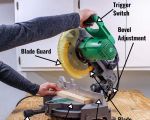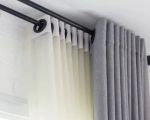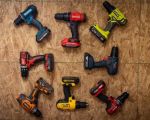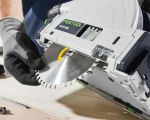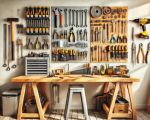Best Screwdrivers for Tightening Small Screws: A Comprehensive Guide
- 1. Why Choosing the Right Screwdriver for Small Screws Matters
- 2. Key Features to Look for in a Screwdriver for Small Screws
- 3. Top Screwdrivers for Tightening Small Screws
- 4. Tips for Using Screwdrivers Effectively on Small Screws
- 5. Real-Life Applications: When a Precision Screwdriver Makes All the Difference
1. Why Choosing the Right Screwdriver for Small Screws Matters
When dealing with small screws, whether you’re assembling furniture, working on electronics, or engaging in delicate repairs, choosing the right screwdriver is essential. Small screws may be tricky to tighten or loosen, and using the wrong tool can lead to stripped heads, damaged threads, or even injury. Having a quality screwdriver designed for small screws can save you time, frustration, and the potential cost of replacing damaged items.
Precision is key when working with small screws, as these screws are often used in sensitive applications. Using a tool that offers the correct size, grip, and torque is crucial for getting the job done efficiently. In this guide, we’ll explore the best screwdrivers for tightening small screws, offering recommendations that suit various tasks and providing tips on how to use them effectively.
2. Key Features to Look for in a Screwdriver for Small Screws
When searching for the best screwdriver for small screws, there are several key features to consider. These features can help ensure that the tool is both effective and safe for precision work. Here are the top factors to keep in mind:
- Precision Tips: Small screws require a screwdriver with a finely crafted, precision tip. This ensures a snug fit with the screw head, reducing the likelihood of slippage and damage. Look for screwdrivers with tips that are made from high-quality steel or chrome-vanadium for durability.
- Ergonomic Handle: Comfort is essential when working with small screws, especially for long durations. A screwdriver with an ergonomic, non-slip handle will provide a secure grip, reducing hand fatigue and offering better control.
- Magnetic Tips: For small screws, magnetic tips can be a game-changer. A magnetic tip ensures that the screw stays attached to the tool, making it easier to position the screw without dropping it, which is especially helpful in tight spaces.
- Adjustable Torque: In some applications, adjusting the amount of torque is crucial to avoid damaging the screw or surrounding material. Some screwdrivers offer adjustable torque settings, allowing for controlled tightening without excessive force.
By considering these key features, you can ensure that you choose a screwdriver that will effectively handle small screws without causing damage or undue stress.
3. Top Screwdrivers for Tightening Small Screws
When it comes to tightening small screws, several screwdrivers stand out for their precision, durability, and ease of use. Here are some of the top-rated options for small screw applications:
- Wiha Precision Screwdriver Set: Known for their high-quality craftsmanship, Wiha’s precision screwdriver set features ergonomically designed handles and precision tips that fit small screws perfectly. The set includes multiple sizes, allowing for versatility in various applications.
- Stanley 66-039 Stubby Screwdriver: This compact screwdriver is ideal for tight spaces, offering a short handle for better maneuverability. It’s perfect for working with small screws in confined areas like electronics or small appliances.
- Craftsman 9-31794 Slotted and Phillips Screwdriver Set: This set includes both slotted and Phillips head screwdrivers with durable chrome-plated steel shafts. The handles are designed for comfort, offering excellent grip and control when handling small screws.
- Vessel Impacta Precision Screwdriver: Known for its high torque and precision, this screwdriver is ideal for jobs that require a tight grip and consistent pressure. Its ergonomic handle makes it easy to use for extended periods without hand fatigue.
- Proxxon 23100 Micro Precision Screwdriver Set: A top choice for those who work with very small screws, such as those found in watches, glasses, or other fine equipment. This set includes ultra-fine tips and a high-quality handle for excellent control.
These screwdrivers are highly recommended for tightening small screws due to their precision, ease of use, and ability to handle delicate tasks without causing damage.
4. Tips for Using Screwdrivers Effectively on Small Screws
Using the right screwdriver is only part of the equation; how you use it is just as important. Here are some helpful tips for ensuring that you’re using your screwdriver effectively when tightening small screws:
- Choose the Right Tip Size: Make sure the screwdriver tip is the right size for the screw head. A tip that’s too large or too small will cause slipping or stripping of the screw, leading to frustration and damage.
- Apply Consistent Pressure: When tightening small screws, apply steady, even pressure. Avoid jerking or over-tightening the screw, as this can lead to cross-threading or damaging the material you're working with.
- Work in a Well-Lit Area: Since small screws can be difficult to handle, working in a well-lit area helps ensure precision. A good lighting setup reduces the risk of dropping or misplacing screws.
- Use a Magnetic Tray: When dealing with small screws, it’s easy to misplace them. Using a magnetic tray to hold your screws while you work can prevent this and make the process more organized.
By following these tips, you can make sure that you're using your screwdriver efficiently and effectively, ensuring a job well done every time.
5. Real-Life Applications: When a Precision Screwdriver Makes All the Difference
Precision screwdrivers are indispensable tools in a variety of industries, from electronics repair to DIY projects. For example, consider the case of an electronics technician who uses small screwdrivers to repair mobile phones. In such delicate tasks, using a high-quality precision screwdriver can prevent damage to fragile components and ensure that screws are tightened correctly without causing additional issues.
Similarly, hobbyists working with small mechanical parts, such as in model kits or small appliances, often rely on these tools for precise assembly. The right screwdriver can make a world of difference in how well these projects come together and how much time is saved during assembly.
These real-life examples illustrate how using the best screwdrivers for small screws can not only improve the quality of work but also enhance efficiency, making the task much easier and more enjoyable.


